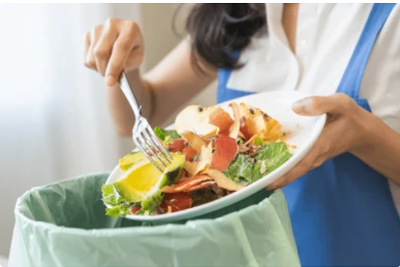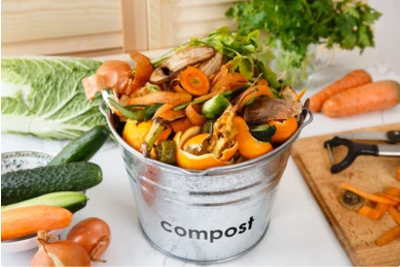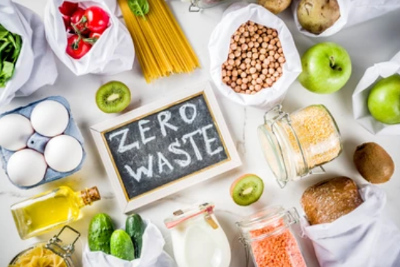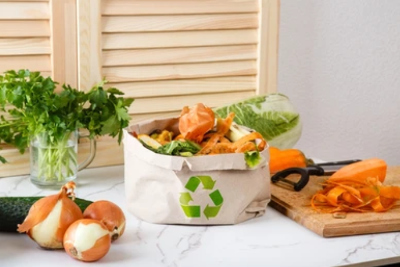
How to Minimize Food Waste
Food waste is a major global issue with ongoing environmental, social and economic impacts. Every year, a large percentage of food in various forms ends up in landfills, adding up to a billion tons of food waste, which decomposes and releases methane—a potent greenhouse gas. This is not only food waste but it also contributes to greenhouse gas emissions which is speeding up climate change globally. By minimizing food waste we can practically contribute to supporting a more sustainable planet by reducing our carbon footprint and saving food. There are many ways to minimize food waste but let’s explore the most effective and practical ones, including the well-known “3 Rs” (Reduce, Reuse and Recycle).
1. Reduce Food Waste at Its Origin
Meal planning in advance is one of the simplest yet most effective ways to reduce food waste. By planning out meals for the week, you will know what exactly to buy and in what quantity. Avoiding impulse purchases can reduce what often goes to waste. Before heading to the grocery store, make a list of ingredients you need, and check your fridge and pantry to avoid duplicates. While shopping stick to your list and avoid buying extra ingredients
unless they have a longer shelf life with easy storage properties.

2. Reuse Leftovers Again with Creativity
Your leftovers don’t always have to be boring. With a little bit of creativity yesterday’s meal can be transformed into a new dish. Instead of discarding them, you can turn them into fresh dishes. For instance, vegetables from last night’s roast can be added to a soup or stew, and cooked grains like rice can be reused in stir fries or for breakfast porridge. The most creative way can be by designating one night a week as a “leftovers night” where you can clear out your fridge and take your creativity to new levels with any remaining food or ingredients.
3. Recycle Organic Waste Conscientiously
Recycling organic waste conscientiously is essential for a sustainable environment. By composting food scraps, yard trimmings and other organic materials we can reduce landfill waste which can lower greenhouse gas emissions and enrich the soil naturally. Composting not only minimizes the carbon footprint but it also turns waste into a valuable resource for gardeners and farms, as it helps plants grow healthier without chemical fertilizers. You can take simple steps by separating organic waste and using a compost bin to support a cleaner, greener planet or if you don’t have space for composting, you can explore community composting options or consider your own indoor composting system.

4. Understanding of Expiration Labels
Everyone should know the difference between “sell by,” “use by,” and “best by” dates as having an understanding of them can prevent unnecessary food disposal. “sell by” is a guide for retailers, “best by” indicates the products peak quality, and “use by” is the date by which the food should be used or consumed. Furthermore, many foods are still safe to eat past the “best by” date if they are stored correctly, so don’t discard food items just because they’ve hit the “best by” date.
5. Introduce and practice “First In, First Out” at Home
Introduce the “First In, First Out” rule to your family members and then organize your fridge, freezer and pantry to follow it. Make a section “use me first” in all three areas and place newer items at the back and older items in the front to ensure that you use up items that are closer to expiring before reaching for new ones. This simple practice at home can help reduce the chance of discarding unused food or products.
6. Freeze Surplus Meals and Ingredients
If by mistake you’ve purchased or prepared too much food or ingredients, then freezing is a logical way to prevent waste. Many fresh fruits, vegetables and even cooked meals freeze well and can be stored for weeks. You can simply label the containers with date and content information to remember to use them within a reasonable timeframe.

7. Donation of Excess Food
Donation of excess food is a alternative method to minimize food waste, if you realize you have excess food in your kitchen that you won’t use in the near future, you can consider donating it to a local food bank or shelter. Many organizations accept fresh produce, non-perishable goods and other packaged items as long as they are unopened and within the stated expiration dates. Check with your local food donation centers to better understand their guidelines. This practice not only minimizes food waste, it helps those in need.
8. Promote Community engagement through Education
Join or support local campaigns in your area to spread awareness about food waste, raising awareness and educating people on the impact of food waste which is important and it can motivate them to make sensible and responsible choices. Community campaigns should highlight the importance of food-waste separation and recycling can increase participation rates. Cities with zero-waste goal, such as Milan, have been successful only due to early public engagement and education. The use of social media in sharing waste-reduction tips with friends and family members can also bring awareness to people.

Minimizing food waste doesn’t really require sudden drastic changes but rather small consistent intentional steps. It’s a shared responsibility among people that combines individual habits with community initiatives. Not only does minimizing food waste benefit the environment and reduce landfill waste but it will also foster a mindful approach towards a cleaner environment to live in and we will not only nourish our bodies but also protect our planet with cleaner air and and a sustainable future, ensuring that we leave a thriving planet for generations to come!
Islamic Services of America (ISA) is a leading USA based Halal certification and auditing organization serving companies, the community, and the Halal certification industry for over 50 years. Contact ISA at isa@isahalal.com or send your initial inquiry to Halal certify your products at https://www.isahalal.com/contact or visit the ISA website for more information at https://www.isahalal.com/